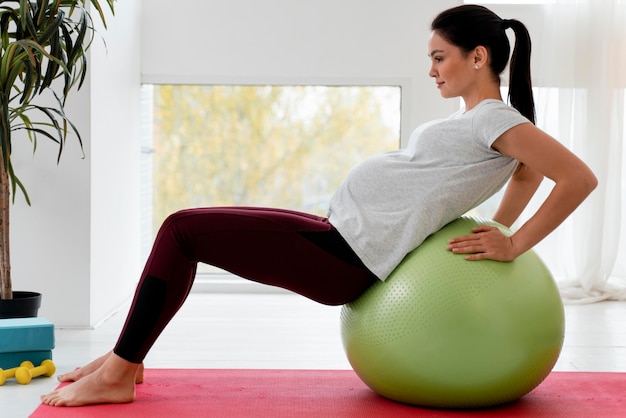Getting quality sleep during pregnancy and postpartum can feel like an impossible dream. Hormonal shifts, physical discomfort, and emotional stress often disrupt rest, leaving many feeling drained. But what if small, intentional movements with minimal equipment could help you sleep better?
This guide offers 50 accessible dumbbell routines designed specifically for real-life schedules—no gym membership, no fancy gear, just a pair of light dumbbells (or even water bottles in a pinch). These movements support better sleep by reducing stress, improving circulation, and gently strengthening your body during and after pregnancy.
Physical activity plays a crucial role in regulating your circadian rhythm, the body's internal clock that controls sleep-wake cycles. Gentle strength training, especially with light resistance, can reduce cortisol (the stress hormone) and increase endorphins, promoting relaxation. During pregnancy and postpartum, controlled movement also helps manage swelling, back pain, and fatigue—all common sleep disruptors.

Each of the 50 routines is designed to take 5–10 minutes, making them easy to fit into busy days. They focus on functional movements that support posture, core stability, and joint health—key areas affected during pregnancy. Most require only one or two light dumbbells (3–8 lbs), and modifications are included for all trimesters and postpartum stages.
Start your day with light resistance to wake up your muscles and set a calm tone. These include shoulder presses, bicep curls, and gentle squats. Doing them near natural light helps reset your circadian rhythm.
Combat afternoon fatigue with short bursts of movement. These routines increase blood flow to the brain and reduce physical tension. Try seated rows or standing lateral raises while watching a child or during a work break.

Wind down with slow, controlled movements that signal your body it’s time to rest. These focus on deep breathing and muscle relaxation. Avoid intense exertion—keep reps low and movements smooth.
Always consult your healthcare provider before starting any exercise program. During pregnancy, avoid lying flat on your back after the first trimester. Postpartum, wait for medical clearance—especially after cesarean delivery. Focus on form over weight, and stop if you feel pain, dizziness, or shortness of breath.
Pair your dumbbell movements with other sleep-supportive habits: dim lights an hour before bed, reduce screen time, and maintain a consistent bedtime. Even 5 minutes of gentle resistance work can enhance relaxation when done mindfully.
Remember, better sleep isn’t about perfection—it’s about small, sustainable choices. These 50 dumbbell routines are tools to help you feel stronger, calmer, and more in tune with your body during one of life’s most transformative phases.
Listen to your body. Honor your energy. Rest deeply.

Wellness

Wellness

Wellness

Wellness

Fitness

Wellness

Fitness

Wellness

Wellness

Fitness

Fitness

Wellness

Health

Fitness

Health

Health